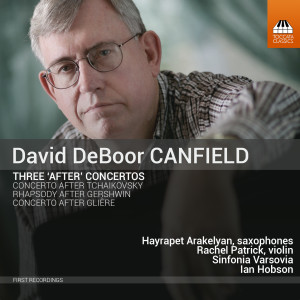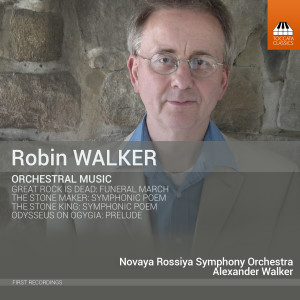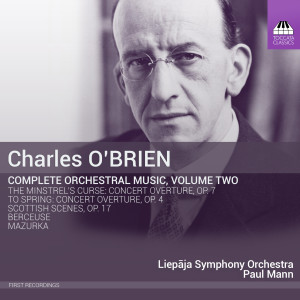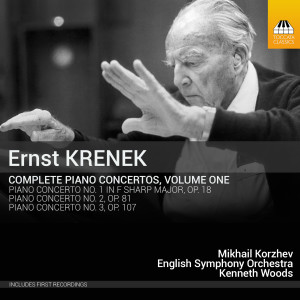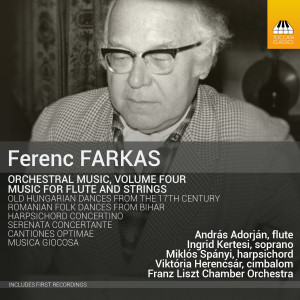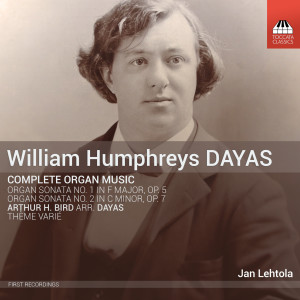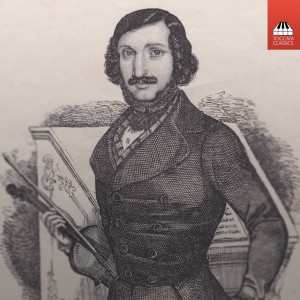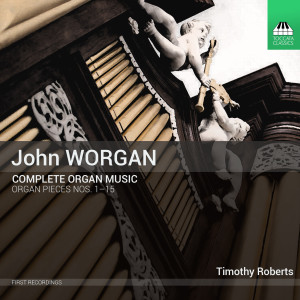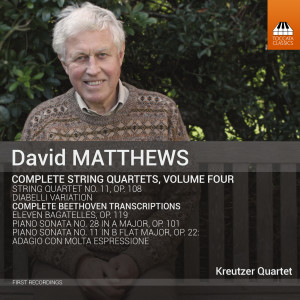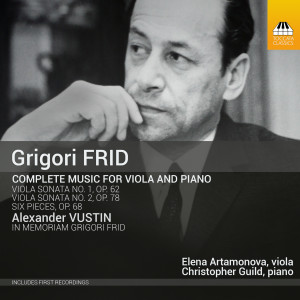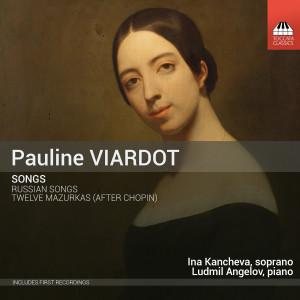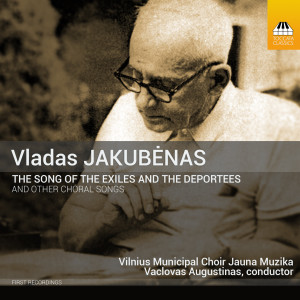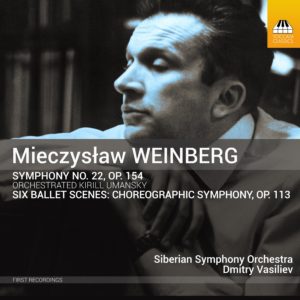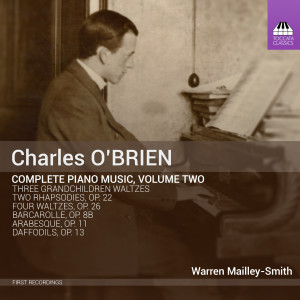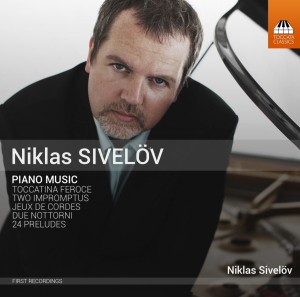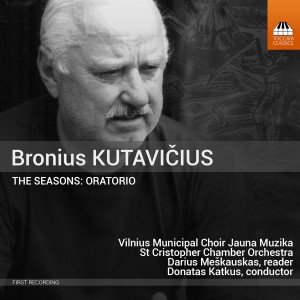Search Results for "Space Wolf: The First Omnibus mp3 torrent" – Page 40
David DeBoor Canfield: Three ‘After’ Concertos
David DeBoor Canfield, born in Florida in 1950, is an unusual composer: as well as writing music in his own contemporary style, he also ventures back into history, generating works that the major figures of the past might have produced had they written for particular instruments. Here are three examples from what he calls his ‘After’ series: saxophone concertos in the styles of Glière and Tchaikovsky and a violin rhapsody that might have flowed from the pen of Gershwin.
Hayrapet Arakelyan, saxophones
Rachel Patrick, violin
Sinfonia Varsovia
Ian Hobson
Robin Walker: Orchestral Music
The English composer Robin Walker (born in York in 1953) writes music which acknowledges nature as the paramount creative force. Working in a tradition which passes through Beethoven, Brahms, Elgar, Sibelius, Tippett and Birtwistle, he challenges the intellectual emphasis of modernism by channelling emotional energy into form, marrying subjective feeling and discipline in what he calls ‘passionate classicism’. This union of instinct and structure has created some of the most vigorous and exciting orchestral music of recent years, as the four powerful pieces on this CD demonstrate.
Novaya Rossiya Symphony Orchestra
Alexander Walker, conductor
Charles O’BRIEN: Complete Orchestral Music, Volume Two
The rediscovery of the music of the Edinburgh composer Charles O’Brien (1882–1968) continues with this second CD of his orchestral music. Two expansive ‘concert overtures’, the bright Schumannesque To Spring and dark, Lisztian The Minstrel’s Curse – symphonic poems in all but name — contrast with two charming miniatures from O’Brien’s youth and a colourful evocation of Scottish life, in a suite consisting of a tone-poem, an heroic elegy and a dancing finale.
Liepāja Symphony Orchestra; Paul Mann, conductor
Ernst KRENEK: Complete Piano Concertos, Volume One
The piano concertos of Ernst Krenek (1900–91) are major contributions to the twentieth-century repertoire, comparable to those of Bartók, Prokofiev, Schoenberg and Shostakovich, but astonishingly two of them have never had commercial recordings – an omission this series seeks to redress. Piano Concertos Nos. 1–3, written between 1923 and 1946, show Krenek throwing off the constraints of tonality in favour of a freewheeling, individual use of twelve-tone technique, brimming with colour and often animated with a keen sense of wit.
Mikhail Korzhev
English Symphony Orchestra
Kenneth Woods
Ferenc FARKAS: Orchestral Music, Volume Four: Music for Flute and Strings
This fourth release in a series of recordings of orchestral music by the Hungarian composer Ferenc Farkas (1905–2000) concentrates on his music for flute and strings, highlighting the characteristics that make his music so appealing: catchy tunes, transparent scoring, buoyant rhythms and a fondness for Baroque forms and folk-dances. Two other concertante pieces – featuring soprano and harpsichord – offer contrast.
András Adorján, flute; Ingrid Kertesi, soprano; Miklós Spányi, harpsichord; Viktória Herencsar, cimbalom; Franz Liszt Chamber Orchestra
William Humphreys DAYAS: Complete Organ Music
The American William Humphreys Dayas (1864–1903) studied with Liszt, was friends with Busoni and became a major piano teacher, spreading the message of Liszt’s music to his students in Helsinki, Wiesbaden, Cologne and Manchester, where his short life came to an end. Dayas left only a handful of compositions, but they include two major organ sonatas – passionate, Lisztian works that have remained completely unknown until now. Dayas also arranged for organ the Thème varié for piano four hands by another forgotten American composer, Arthur H. Bird (1856–1923), a further important addition to the late-Romantic organ repertoire.
Jan Lehtola, Walcker Organ of St. John's Church, Helsinki
Heinrich Wilhelm Ernst Bundle
- Heinrich Wilhelm Ernst: Complete Music for Violin and Piano, Volume One
- Heinrich Wilhelm Ernst: Complete Music for Violin and Piano, Volume Two
- Heinrich Wilhelm Ernst: Complete Music, Volume Three
- Heinrich Wilhelm Ernst: Complete Music, Volume Four
- Heinrich Wilhelm Ernst: Complete Works, Volume Five
- Heinrich Wilhelm Ernst: Complete Works, Volume Six
John WORGAN: Complete Organ Music
The organist and harpsichordist John Worgan (1724–90) was one of the most highly respected musicians in the London of his day: Handel admired his playing, and Burney described him as ‘very masterly and learned’. Worgan was the organist of Vauxhall Gardens and of a number of London churches and naturally composed for his own instruments. Most of his music is lost, but his fifth son, James Worgan, also a musician, had fifteen of his father’s organ pieces published after his death. Here they are performed on the organ of St Botolph’s without Aldgate (perhaps England’s oldest surviving church organ), where Worgan himself was organist from 1753 until his demise – the perfect vehicle for this quirky but proud music.
Timothy Roberts, Organ
David MATTHEWS: Complete String Quartets, Volume Four
The American critic Robert Reilly described the music on Volume One of this cycle of the complete string quartets of David Matthews (b. 1943) as ‘some of the most concentrated, penetrating writing for this medium in the past 30 years or more. It is musical thinking of the highest order and quartet writing in the great tradition of Beethoven, Bartók, Britten, and Tippett’. This fourth CD in the series presents Matthews’ String Quartet No. 11, a set of variations on the eighth of Beethoven’s Op. 119 Bagatelles, as well as his own contribution to the ‘Diabelli’ Variations and his complete Beethoven transcriptions for string quartet.
Kreutzer Quartet
Grigori Frid: Complete Music for Viola and Piano
The Russian composer Grigori Frid (1915–2012), whose long life encompassed the entire existence of the Soviet Union, is best known for his 1969 chamber opera The Diary of Anne Frank. His sizable output, which has yet to be properly explored, includes three major works for viola and piano, their dignified restraint and emotional honesty taking the late works of Shostakovich as their stylistic starting point. They are followed by In Memoriam Grigori Frid, a touching tribute by Alexander Vustin (b. 1943) to his former teacher.
Elena Artamonova, viola
Christopher Guild, piano
Pauline Viardot: Songs
Pauline Viardot (1821–1910) was one of the most extraordinary women in the history of music. Daughter of the Spanish tenor Manuel García and sister of the mezzo-soprano Maria Malibran, she studied piano with Liszt and counterpoint and harmony with Reicha, made her debut, also as a mezzo, at the age of sixteen and went on to inspire composers of the stature of Berlioz, Chopin, Gounod, Meyerbeer, Saint-Saëns, Schumann and Wagner, And she was no mean composer herself, as these passionate songs demonstrate. Twelve of them are arrangements of mazurkas by her good friend Frédéric Chopin; the others set some major poems in Russian, a language she spoke fluently.
Ina Kancheva, soprano
Kamelia Kader, mezzo-soprano
Christo Tanev, cello
Ludmil Angelov, piano
Vladas Jakubėnas: The Song of the Exiles and The Deportees and Other Choral Songs
The Lithuanian Vladas Jakubėnas (1904–78) is one of a lost generation of Baltic composers. A student of Schreker in Berlin, he returned home to help build the musical culture of his country. But the Nazi invasion and Soviet occupation drove him into exile and, after five years in refugee camps in Germany, he settled in Chicago, playing an important role in the Lithuanian diaspora in North America. These choral songs show the deep identification of his late-Romantic style with the folk-music of the land he was forced to leave behind.
Vilnius Municipal Choir Jauna Muzika
Jurgita Mintautiene, soprano
Gintautas Skliutas, tenor
Dainius Jozenas, piano
Vaclovas Augustinas, conductor
Mieczysław Weinberg: Orchestral Music, Volume Two
In the twenty years since his death the star of the Polish-born Moscow-based Mieczysław Weinberg (1919–96) has risen rapidly: his music – a highly individual amalgam of the Jewish idioms of his youth and the style of his mentor and friend Dmitry Shostakovich – is now seen as one of the most distinctive contributions to twentieth-century music. This further instalment in the Toccata Classics examination of his output couples a mature dance-based score – not performed before this recording – with his last symphony, orchestrated after his death by the composer Kirill Umansky.
Siberian Symphony Orchestra
Dmitry Vasiliev
Charles O’Brien: Complete Piano Music, Volume Two
Charles O’Brien (1882–1968) was a mainstay of musical life in Edinburgh, but his attractive, lyrical muse has long been forgotten even there, let alone anywhere else. This third recording in a series devoted to his music reveals a composer whose lively music reflects his Scottish heritage, mixing Brahmsian grand gestures with Schumannesque intimacy.
Warren Mailley-Smith, piano
Niklas Sivelöv: Piano Music
The tradition of the pianist-composer features some of the best-known names in music, among them Mozart, Beethoven, Chopin, Brahms and Rachmaninov. Now the Swedish pianist Niklas Sivelöv (born in Stockholm in 1968) humbly joins their ranks, with music coloured by a range of influences, from Bach to jazz. This recording presents some of his early compositions and some of his most recent.
Niklas Sivelöv, piano
Bronius Kutavičius: The Seasons: Oratorio
Bronius Kutavičius’ oratorio The Seasons (2005–8) sets texts from a classic Lithuanian poem by the eighteenth-century pastor-poet Kristijonas Donelaitis which describes the lives of the peasants as they toil throughout the year. Kutavičius has long been fascinated with Lithuania’s folk-heritage, and The Seasons mixes musical modernism and primitivism in a powerful portrayal of the interaction of human activity and natural forces.
Vilnius Municipal Choir Jauna Muzika; St. Cristopher Chamber Orchestra; Darius Meškauskas, reader; Donatus Katkus, conductor;
Stay In the Know
JOIN THE TOCCATA NEWSLETTER
"*" indicates required fields
By visiting our site, you agree to our privacy policy regarding cookies, tracking statistics, etc.
